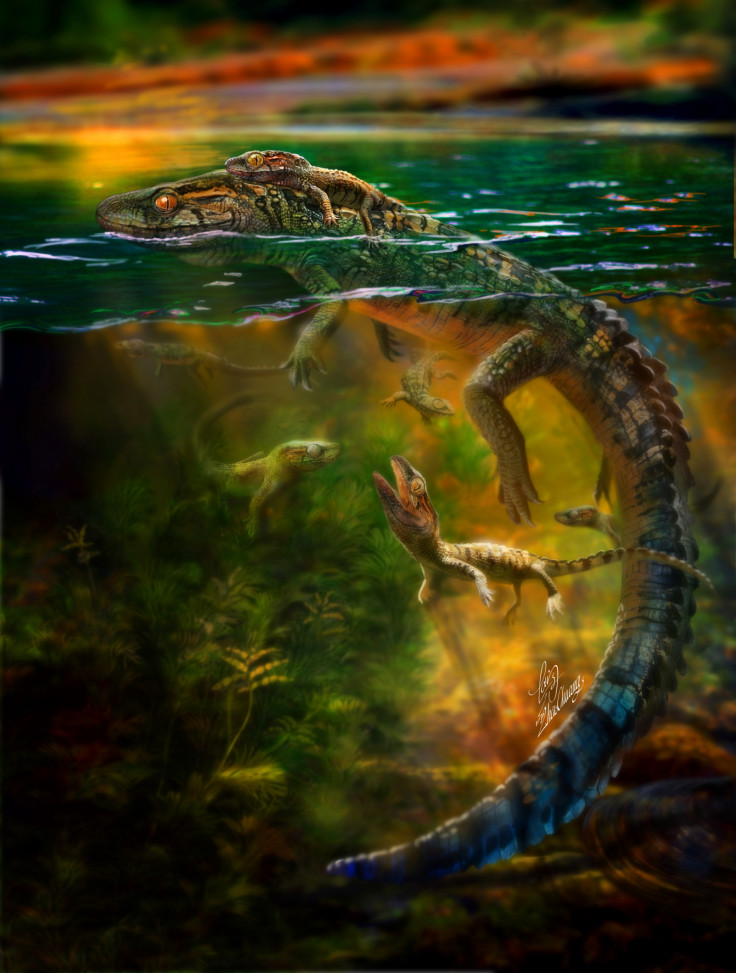Jurassic era fossil shows oldest record of parental care in extinct aquatic reptiles

A well-preserved fossil of an extinct aquatic reptile from the Jurassic period could be the oldest record of post-natal parental care among reptiles.
A study by the Institute of Geology, Chinese Academy of Geological Sciences, Beijing, the University of Lincoln, UK and Hokkaido University, Japan, presents new evidence of parental care in the aquatic choristoderan Philydrosauras found in western China.
Discovered by a farmer in China four years ago, the fossil displays an apparent family group with an adult surrounded by six juveniles of similar sizes.
Choristoderes are a group of small aquatic and semi-aquatic diapsid reptiles which emerged in the Middle Jurassic Period more than 160 million years ago.
Although it is possible that the individuals were all swept together during or soon after the event that killed them, the researchers feel the specimen more likely represents an instance of postnatal parental care.
Given that all of these animals died within a tail's length of one another, it's likely that the adult was caring for the young, they say.
Caring for offspring beyond birth is key in most living archosaurs – birds and crocodilians.
However, evidence of the same has been rare in the fossil record and only reported for two types of dinosaurs and varanopid "pelycosaurs" – a reptile resembling the monitor lizard.
"That Philydrosauras shows parental care of the young after hatching suggests protection by the adult, presumably against predators. Their relatively small size would have meant that choristoderes were probably exposed to high predation pressure and strategies, such as live birth, and post-natal parental care may have improved survival of the offspring," says Dr Charles Deeming, from the School of Life Sciences, University of Lincoln.
The fossil is the latest in an increasingly detailed collection of choristoderes exhibiting different levels of reproduction and parental care.
More fossil discoveries will be needed to confirm that post-natal parental care is a behaviour that has persisted in the evolutionary development of amniotes.
The study is published in Geosciences Journal.
© Copyright IBTimes 2025. All rights reserved.





















